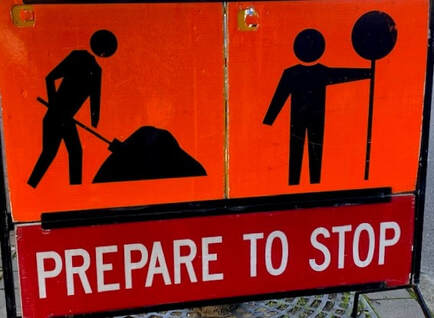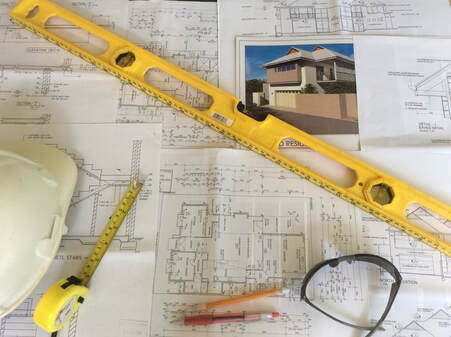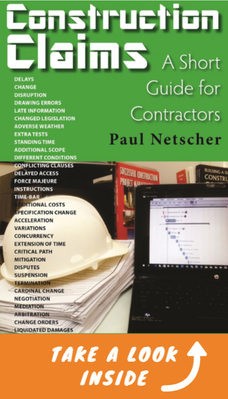"Why would contractors do work which they aren't paid?" This sounds a strange question! Which construction contractor works for free? Yet it’s something that happens often on construction projects. Contractors regularly unwittingly carry out work for which they aren’t paid. I’m not talking about dishonest clients who don’t pay their contractors, which is another story all together, rather, it’s because contractors haven’t claimed for the work they’ve done. Reasons why contractors do not claim money due to themSome reasons for this are: 1. the construction project manager isn’t familiar with the project scope of works and what was priced in their tender 2. the project manager hasn’t read the contract document or doesn't understand it 3. the project manager isn’t taking note of the work being carried out or when and what the client has provided 4. the contractor’s person preparing the invoices to the client isn’t familiar with the construction site conditions or the construction work that’s been completed 5. the contractor doesn’t have the required knowledge or training to understand they are entitled to be paid the variation 6. the construction project manager is focused on delivering the project and neglects the financial aspects #constructionclaims #constructioncontracts #constructionlaw "Most construction projects will change and vary from the works that were originally priced. " When contractors can claim a variation and submit a change orderMost construction projects will change and vary from the works that were originally tendered for and priced. Construction contractors must ensure that they are paid for all additional work. Variations occur for a number of reasons including: 1. additional scope – extra work which wasn’t allowed for in the client’s tender document and consequently wasn’t priced by the contractor 2. errors and omissions in the document – resulting in the contractor not pricing or allowing for certain items, restrictions or specifications which they now have to allow for 3. changes to drawings – this may include doing additional work, or having to redo completed work when the changes are issued late 4. delays due to: a. late access being granted to the construction site b. late information or drawings c. the client making changes to the completed works d. unforeseen weather conditions e. unforeseen project conditions f. the client’s contractors or workers impeding or preventing access g. the client-provided services being unavailable, being of insufficient quantity, not provided to the point specified, or provided late h. the client-supplied construction equipment or materials arriving late, in insufficient quantities, or not to the correct quality See also Can I Claim for Additional Time on My Construction Project? and Has Your Project Been Delayed? 5. changes in specifications 6. changes in working conditions such as: a. unexpected ground conditions, for example, rock b. encountering unforeseen hazardous materials on the site c. the discovery of artifacts on the construction site d. the unexpected presence of underground water 7. changes of commercial or contractual conditions 8. the client delaying or changing milestone dates, or requesting the schedule to be accelerated 9. drawing errors and drawing coordination problems 10. changes of law within the state or country (see also When can contractors claim extra costs?) 11. the client or their contractors damaging completed work #constructiondelays #constructionprojectmanagement "It’s important that the contractor regularly compares construction drawings and specifications with what was priced." It’s vital to read through and understand the construction contract (An introduction to construction variation claims for construction project managers video 14 - The Construction Contract Document) and project pricing or tender documents, as well as the related correspondence. It’s important that the contractor regularly compares construction drawings and specifications with those issued when the construction project was priced to ensure that they haven’t changed. #constructionmanagement #constructionchangeorders #contractors Contractors should ask these questionsContinually ask the questions: 1. ‘Are we constructing what we tendered for?’ 2. ‘Are the site conditions as expected at tender stage?’ 3. ‘Has the client fulfilled all their obligations in the contract?’ Some changes are simple for contractors to claimSometimes the variation is as simple as submitting a revised rate or price for an item or task because the description of the item priced at tender stage has changed, for example because: 1. the height or dimensions have changed 2. the quantity has changed 3. the specification is different Get your change order rightThe client must be notified of variations as soon as the contractor becomes aware of them, and certainly within the time specified in the contract. Failure to do so may mean the contractor loses their right to claim. An introduction to construction variation claims for construction project managers Video 4 - Reasons claims are rejected The contractor should ensure that the person preparing the variation has the required knowledge and experience to prepare the claim. If there’s any doubt as to the validity of the claim, or what should be included, seek advice from experts within the company or from outside providers. The cost of getting proper advice is often far outweighed by the revenue that can be earned by an expertly formulated and drafted claim. Pricing the variation correctly is a topic which I will discuss in the future. 15 Rules for construction variation claims and change orders Read also this useful article http://qsadvisor.com/2014/06/additional-works-on-site-the-key-to-getting-every-penny/  (An article adapted from the book ‘Building a Successful Construction Company; The Practical Guide’ by Paul Netscher) Do you want to learn how to manage construction projects successfullyPaul Netscher has written several easy to read books for owners, contractors, construction managers, construction supervisors and foremen. They cover all aspects of construction management and are filled with tips and insights.
Visit to read more. The books are available in paper and ebook from most online stores including Amazon. construction management construction project management
3 Comments
David Mkandla
18/5/2015 04:35:47 am
You articles are great and to the point.
Reply
Paul
19/5/2015 02:50:03 am
Thanks David, I hope my articles are adding value to the way you do business. Please share this website address with others who may benefit from reading the content.
Reply
Leave a Reply. |
Archives
June 2024
Note: We welcome genuine comments, especially comments that add additional information to the subject matter in the article. We however reserve the right to remove inappropriate comments, which includes comments that have nothing to do with the subject, comments that include inappropriate language, and comments that are an advertisement for a product or company, or which include an advertising link. Comments must be in English. We will not enter into discussion on why a particular comment was removed.
CategoriesCopyright 2016 - The attached articles cannot be reproduced for commercial purposes without the consent of the author.
The opinions expressed in the attached articles are those of the writer. It should be noted that projects are varied and different laws and restrictions apply which depend on the location of the contractor and the project. It's important that the reader uses the supplied information taking cognisance of their particular circumstances. The writer assumes no responsibility or liability for any loss of any kind arising from the reader using the information or advice contained herein. "I have what I consider some of the best books on construction management."
Books are available from: Amazon.com Amazon.co.uk takealot.com kalahari.com Amazon.in Amazon.de Amazon.fr Amazon.it Amazon.com.au Powell's Fishpond uread bokus Amazon.ca Amazon.es Other retail stores Available in paperback or on Kindle "28 YEARS OF CONSTRUCTION PROJECT MANAGEMENT EXPERIENCE, DEVELOPING SUCCESSFUL CONSTRUCTION PROJECT MANAGERS AND BUILDING SUCCESSFUL CONSTRUCTION COMPANIES"
|







 RSS Feed
RSS Feed




